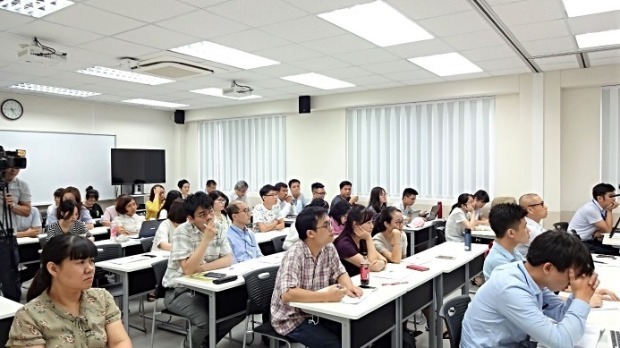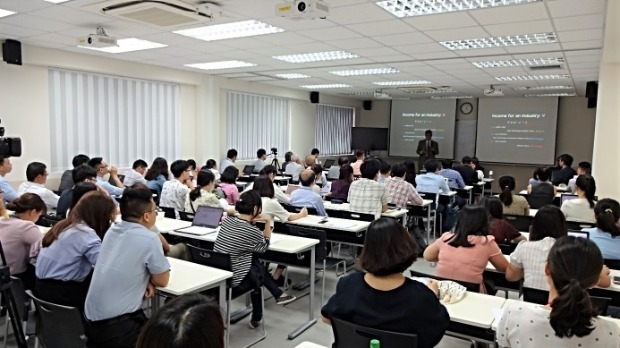“If you want to develop a field of scientific study, send students to the US or the UK, but if you want to develop an entire industry, send them to Japan.” Kozo Ishizaki, Professor Emeritus, Advisor to the President, Former Vice President of Nagaoka University of Technology (Japan), in the special lecture on “The history of industrial development in Japan for two centuries – educational and linguistic aspects” on the afternoon of May 14, 2018 at the Vietnam Japan University.
Japan is one of the most studied countries in the world for economic history, with miraculous growth over three periods- the first in the Edo period (1603); the second from the Meiji Restoration (1868); and especially, the third after the Second World War (1945) with the focus on development of cutting-edge industries, Japan has emerged as the world’s second-largest economic powerhouse. There are many reasons for this strong transformation, in which Japan has actively studied and applied Western technological advances to industrial development.

In his career, Prof. Kozō Ishizaki has had extensive research into the influence of languages on education and training in the field of technology from the Meiji period. Based on his knowledge and experience, Professor Ishizaki shared his views and analysis on Japan’s success in industrial development through education and language, and made comparisons with other developed countries.
With regards to education, he said, most of the universities in Japan were established after 1868 due to the demand of high quality human resources for industrial development, which had led to the inclination of higher education degrees in science and technology being higher than in other fields. Specifically, the ratio of students in engineering degrees to basic sciences degrees in Japan is 6, while the figures in the United Kingdom and the United States is only 0.7, and in Germany only 1.3. “If you want to develop a field of scientific study, send students to the US or the UK, but if you want to develop an entire industry, send them to Japan.” Prof. Ishizaki shared.

One difference in the history of industrial development in Japan compared to other developed countries is the philosophy on operation of the companies. In Japanese companies, the simplest products are also added with values thanks to the increase in technical contents and the application of scientific advances to the products. Many products and business ideas in Japan, therefore, are derived from the research projects in the university.
In addition, the concept of the company belonging to all members regardless of ranking and positions also contributes to the stability and long-term development of Japanese enterprises. In fact, in Japan there are over 3300 long-standing companies, accounting for more than 50% of the number of such companies and businesses worldwide.
In terms of languages, in the process of learning and applying modern science and technology to the development of the industry, the Japanese government has translated scientific and technical terms from Western languages to Japanese and popularized it through education and training. It is thanks to the translation of these terms and materials, the Japanese have learned and grasped the modern scientific and technical knowledge regardless of whether they are proficient in foreign languages or not. Prof. Ishizaki said that even one of Japan’s Nobel Prize-winning physicists did not speak English.
In addition, according to Prof. Ishizaki, in the process of translation, the Japanese language also develops new vocabulary for interdisciplinary and multidisciplinary concepts that do not even have the equivalents in English.

The lecture on “The history of Japanese Industrial Development in the last two centuries – Education and Linguistic aspects” is the eighth lecture in a series of special lectures by the Vietnam Japan University. The lecture has provided opportunities for VJU students, researchers and interested individuals to learn more about the great development history of Japanese industry and the contributions of linguistics and education to it.

